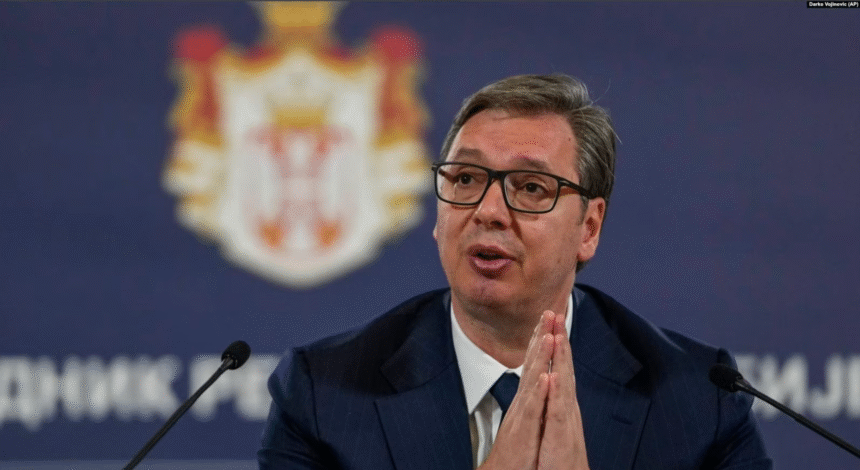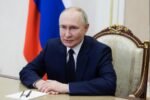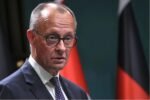The current state of democracy in Serbia under Aleksandar Vučić’s regime could be best described not as true democracy, but as its parody—a political travesty reduced to farce.
From Radical Beginnings to Total Control
Born in 1970, Aleksandar Vučić is the first politician from the 1970s generation to reach the pinnacle of political power in Serbia. A graduate in law, Vučić joined the Serbian Radical Party (SRS) in 1993 at just 23 and was quickly elected as a Member of Parliament. By 1995, he became the party’s Secretary-General.
Three pivotal moments define Vučić’s long and ideologically fluid political career:
- In 1998, when the SRS formed a coalition government with the Socialist Party (SPS) and Yugoslav Left (JUL), Vučić was appointed Minister of Information. His term saw the enforcement of a draconian media law that shut down several independent newspapers, marking an early display of authoritarian tendencies.
- In 2008, prior to parliamentary and local elections, Vučić boldly declared he would not accept any parliamentary seat unless elected Mayor of Belgrade—a promise he kept. He gained 34.7% of the vote but lost the mayoral position due to SPS’s coalition shift, a political lesson that would later shape his strategic mindset.
- That same year, following the rift within the SRS, Vučić hesitated before ultimately leaving the party and co-founding the Serbian Progressive Party (SNS) with Tomislav Nikolić. Though he briefly withdrew from public life, he returned within weeks and was elected Deputy President of SNS.
Ideological Transformation or Strategic Rebranding?
Vučić’s move to SNS came with a complete ideological pivot—from nationalist to pro-European reformist. When asked how a former advocate for “Greater Serbia” became a pro-EU advocate, he replied: “It was a process. You don’t just wake up one morning and change.”
In 2012, after Nikolić became President of Serbia, Vučić took over SNS leadership, consolidating his power. With each election, his influence grew—backed by a combination of media control, economic promises, and calculated alliances.
The Engine Behind His Rule: Monopoly on Power
Critics argue that Vučić’s electoral dominance is not about popularity but about monopolized power. His government benefits from full media control, access to public funds, and permanent campaigning using state resources—a phenomenon dubbed “functionary campaigning.”
His strategy involves:
- Creating the perception of SNS as a successful corporation, offering thousands of job placements to loyal supporters.
- Ensuring loyalty by rewarding allegiance and punishing dissent.
- Sustaining propaganda through media allies like Pink TV and Informer, framing Vučić as the sole provider of roads, salary raises, and pensions.
International Tolerance and Internal Suppression
Despite his autocratic image, Vučić enjoys international support as long as he delivers on key issues: foreign investment, Kosovo negotiations, pacifying Republika Srpska, and maintaining regional stability.
Domestically, he sustains power through:
- Marginalizing his own party figures to prevent internal threats.
- Discrediting opponents with labels like “thieves,” “scum,” or “losers.”
- Occupying the political center while deepening divisions within the opposition, leaving them fragmented and weak.
Political Satire or Systemic Decline?
Vučić once claimed that Serbia’s political scene resembled a “zoological farm” filled with rodents and parasites, yet fails to see such traits within his own ranks. The irony is not lost on observers.
His rise began with a high-profile anti-corruption campaign, notably the arrest of tycoon Miroslav Mišković. But the tragic collapse of a construction roof in Novi Sad, which killed 16, served as a grim reminder that corruption kills—and potentially, the beginning of Vučić’s political decline.







